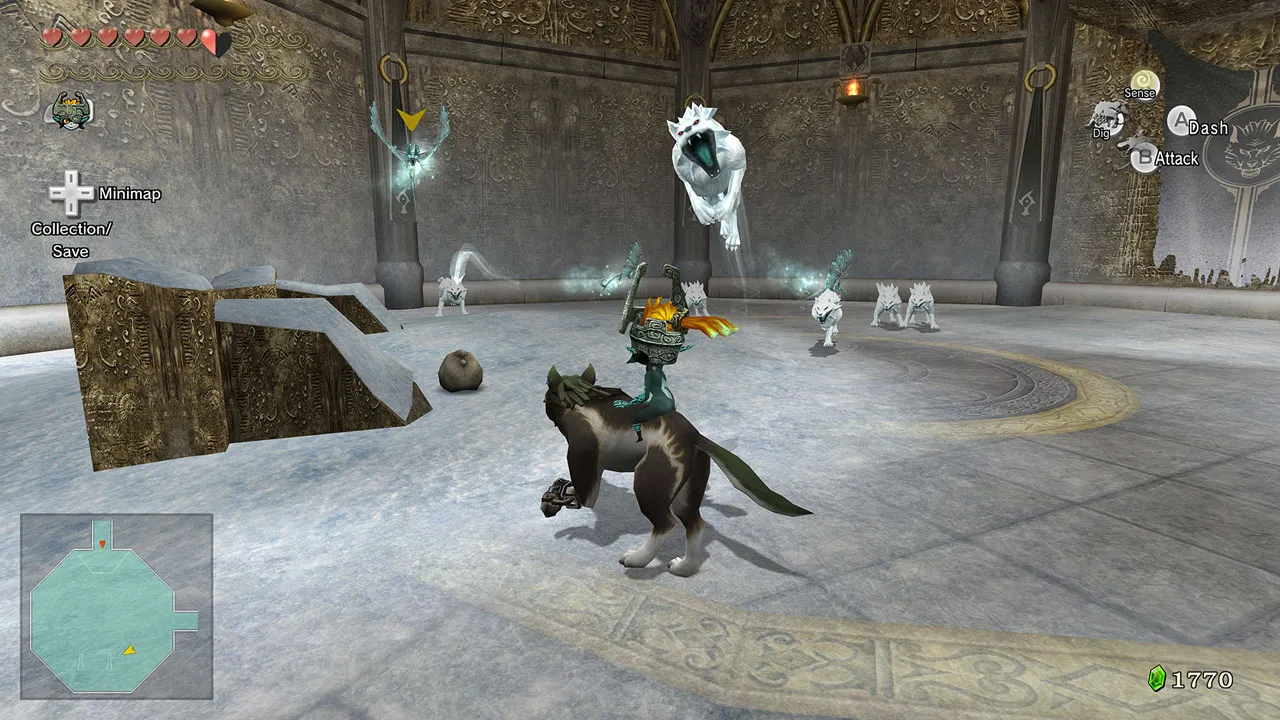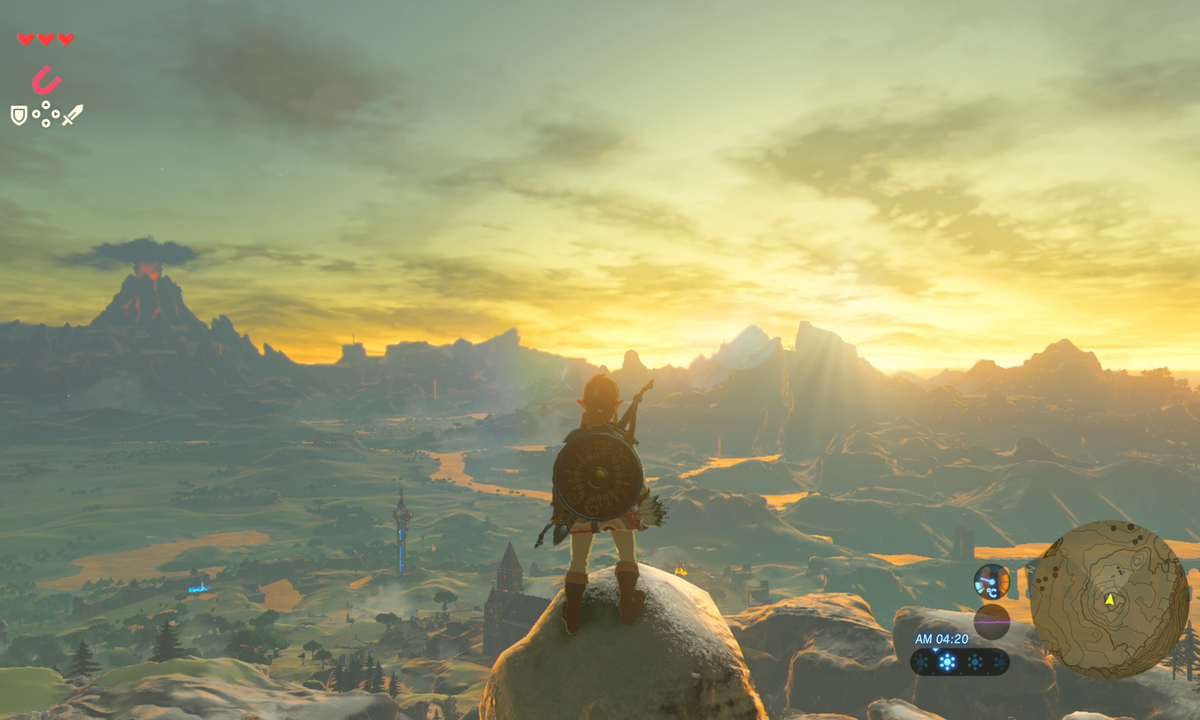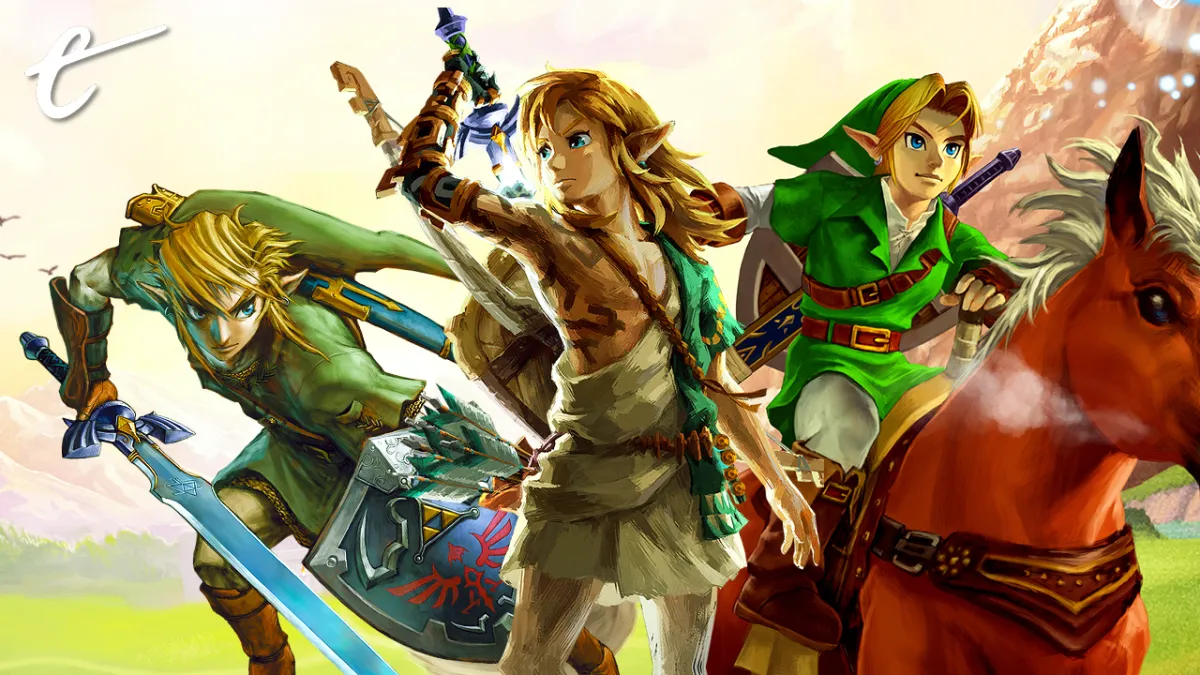It’s not difficult to define a traditional Zelda game. Essentially, Link must solve a set order of dungeons, earning puzzle-solving items along the way that let him further explore a quasi-open world on his quest to defeat Ganondorf. Throw in some good tunes, and you’ve got one of the greatest gaming series of all time.
Up until 2013’s The Legend of Zelda: A Link Between Worlds, all Zelda games more or less followed this structure, with a little deviation here and there. You can clear the Spirit Temple before the Shadow Temple in Ocarina of Time, for instance, and there are plenty of optional areas to explore in every title. Still, besides the original title, these games had a fairly linear path to follow, none more so than 2011’s Skyward Sword. The option to complete 2013’s A Link Between Worlds’ dungeons in any order was our first taste of player freedom in the series. It was like an appetizer before Breath of the Wild came along in 2017 as a full course meal with a monster cake for dessert.
Now, after the release of Tears of the Kingdom, it’s clear we will never get a “traditional” Zelda game again, and that’s bittersweet.
As a sequel that expands upon Breath of the Wild in every respect, Tears of the Kingdom has solidified a new era of Zelda centered around Shrines, a handful of new abilities, and a vast Hyrule to explore with a Korok to find atop every mountain and under nearly every rock. There’s always a chance we’ll get a smaller, top-down-perspective Zelda game, but in that case, I’d expect it to borrow from A Link Between Worlds more than something on (literal) rails like Spirit Tracks. There’s probably a remake or remaster or two for Nintendo Switch’s successor in the works as you read this too, but as for main entries, the era of nostalgic, linear Zelda games has clearly ended.

Don’t misunderstand: I don’t want another traditional Zelda, but they’ve been a part of gaming history for almost its entirety. I was practically raised by the franchise, being able to remember at what stage of my life I was in — a third grade elementary school student playing Ocarina of Time, preparing to graduate high school with Twilight Princess, etc. — for each release. Link’s adventures have influenced so many that they’ve become cultural touchstones for the entire industry; without them, we wouldn’t have so many other great games that followed in the path Zelda paved.
But their time has passed. Skyward Sword was the breaking point for many, myself included, that overburdened players with lengthy tutorials and explanations, not trusting them to explore the Hyrule above and below the clouds themselves, while presenting one of the most straightforward adventures yet. While I gained new appreciation for it with the HD remaster for Switch, it remains my least favorite console-based Zelda game.
On the contrary, the Great Plateau tutorial in Breath of the Wild came like an innovative breath (sorry) of fresh air. Exploring this small slice of an open-world Hyrule without any hands to hold is not only one of my favorite Zelda moments, but also one of my favorite gaming experiences, period.

Like its predecessor, Tears of the Kingdom will challenge for “Game of the Year.” It is, by almost every metric, a massive success. I have barely scratched the surface of the game, yet as I continue to play, I’m alarmed by how many Zonai Devices I’m finding. I can’t believe how vast the Depths appear, and other than finding a few treasure chests, I haven’t experienced a lot of what the islands in the sky have to offer. Shrine after Shrine impresses me with the creativity required to clear it, so much so that it’s hard to believe how Aonuma and his team at Nintendo can ever top this.
It’s a little bit early to look so far in the future, but the next big Zelda game, somewhere between five and 10 years from now, will somehow have to innovate upon the pure creative freedom that Tears of the Kingdom offers. Otherwise, many — both fans and critics alike — will consider it a step back. The merits of introducing a new structure or continuing the current system (Do any of us really want to collect a few hundred more Koroks?) will certainly become a topic of discussion in the coming years. Regardless, Aonuma has clearly proven that they can innovate both a genre and a storied franchise, so I don’t have any doubt that the next Zelda game (Revenge of the Zonai?) will meet expectations. I am certain Nintendo will never return Zelda to its classic linearity, however. It may be bittersweet, but the era of traditional Zelda games has finished.






Published: May 22, 2023 12:00 pm